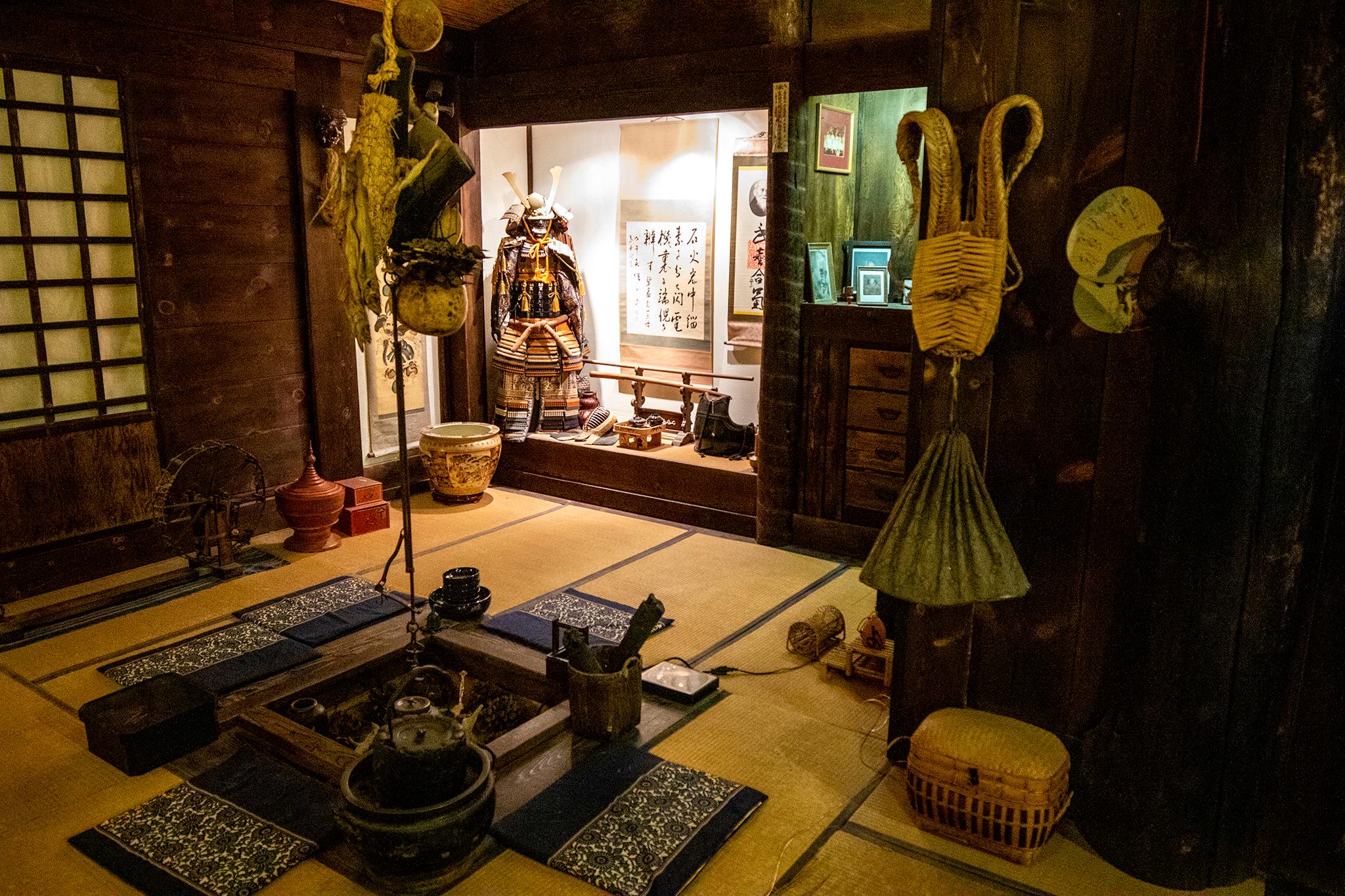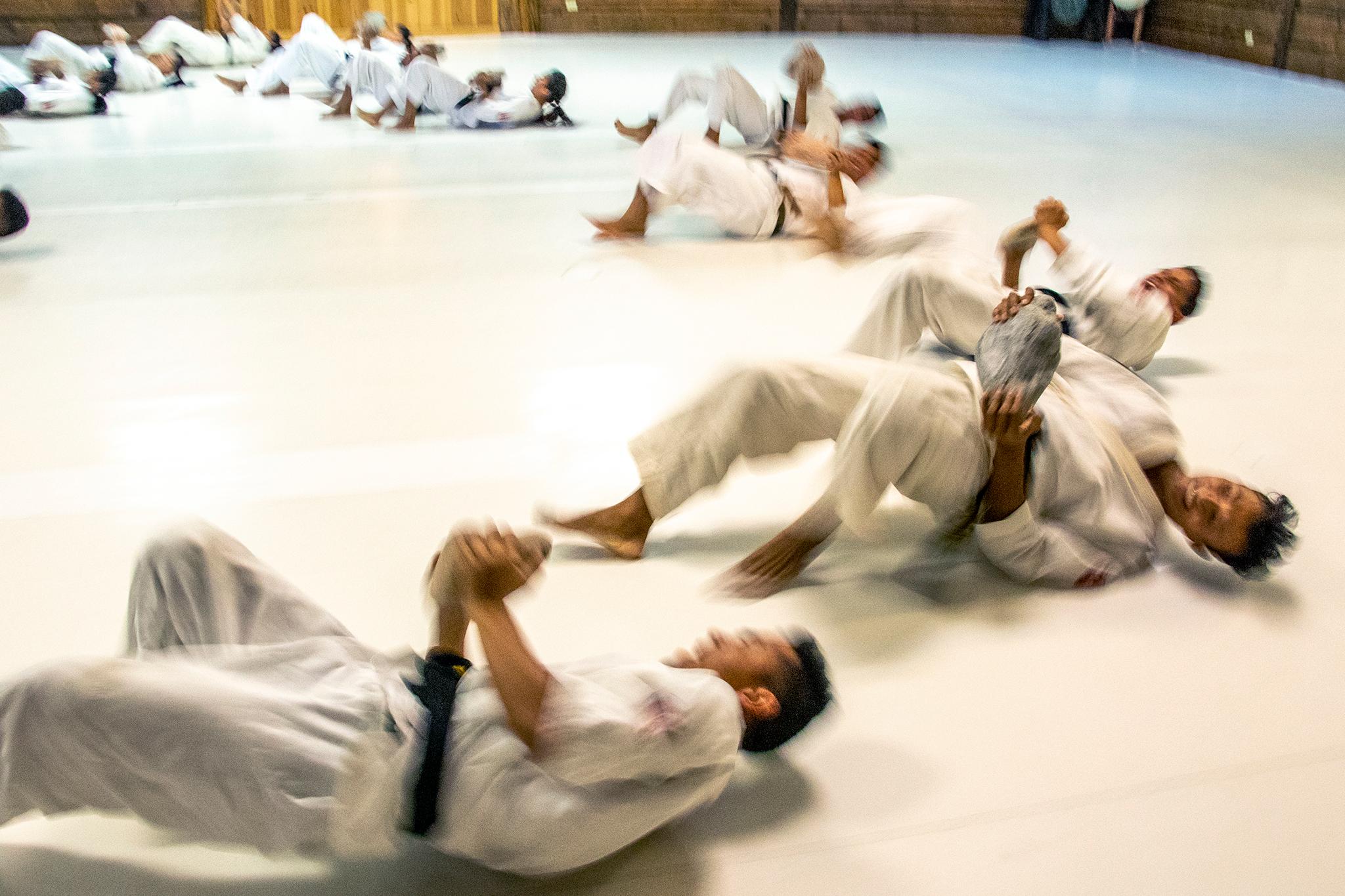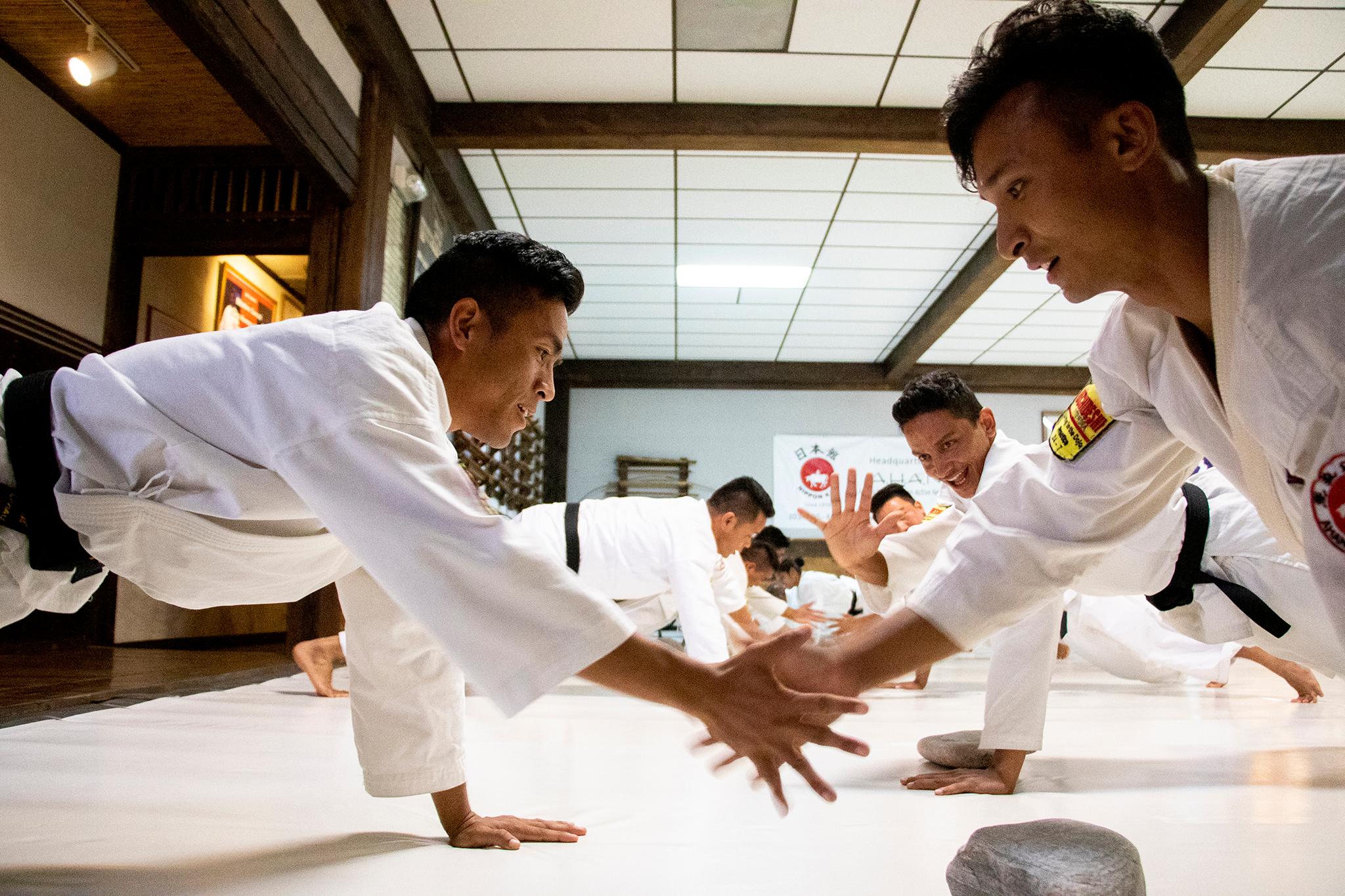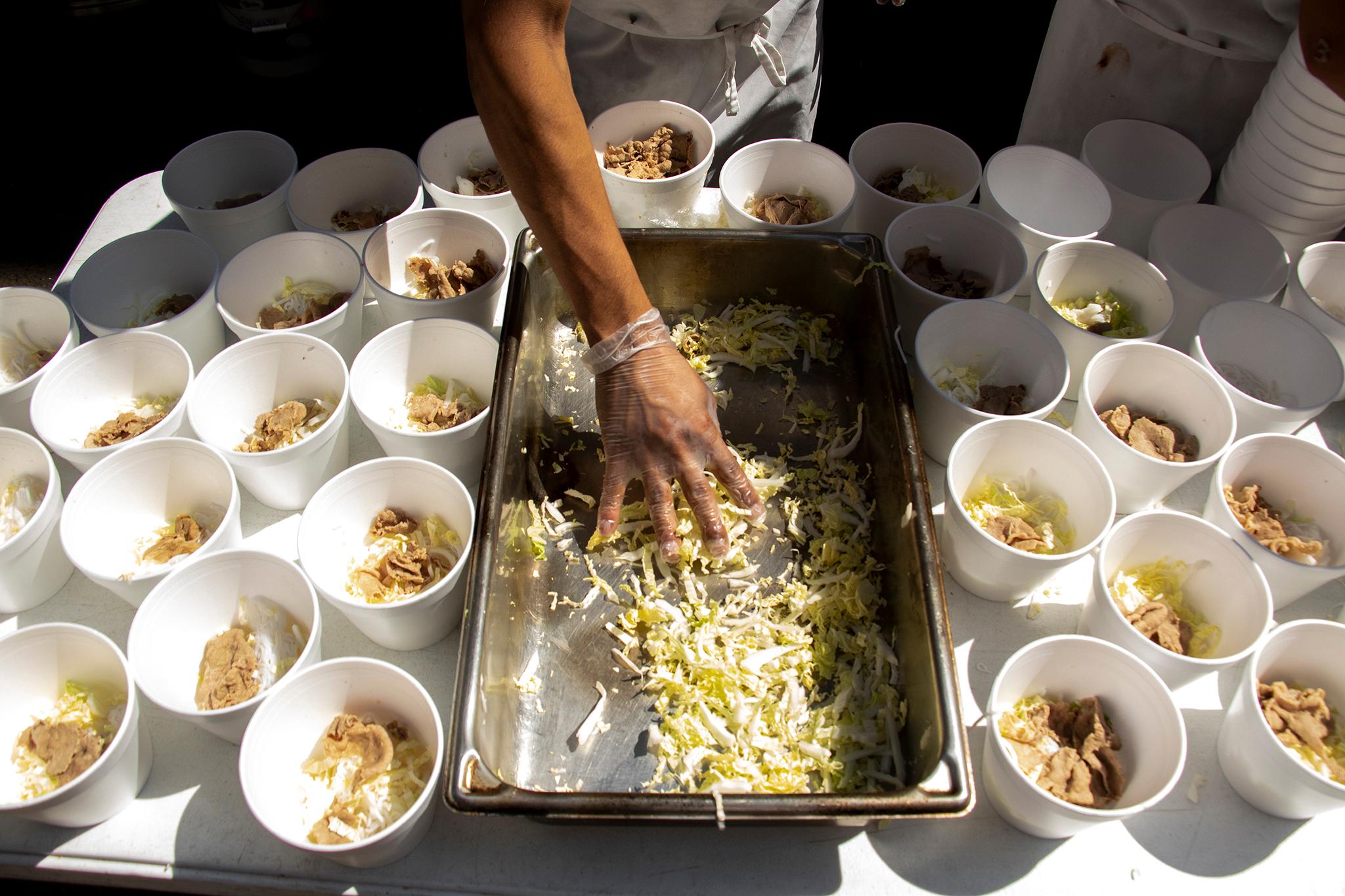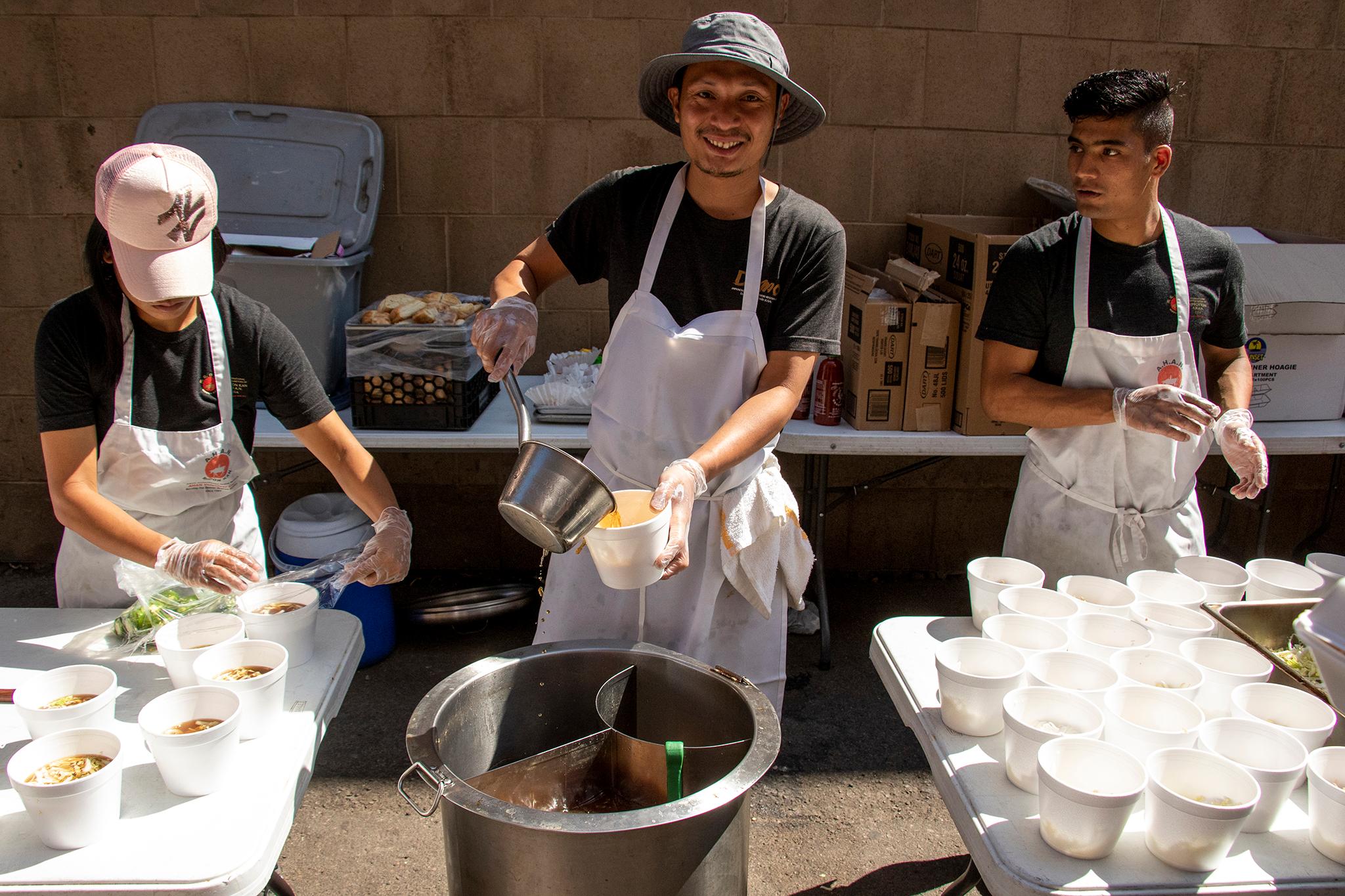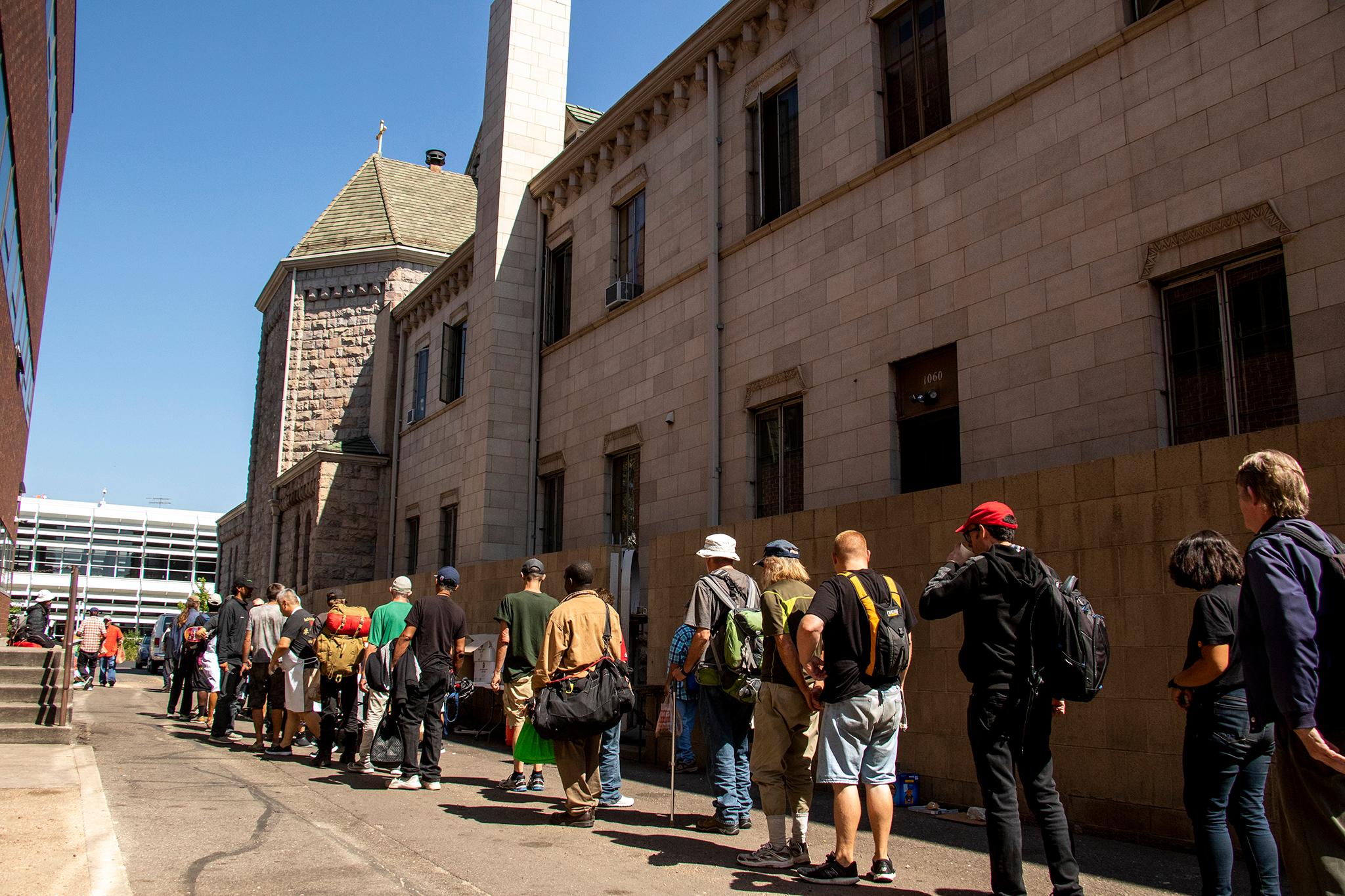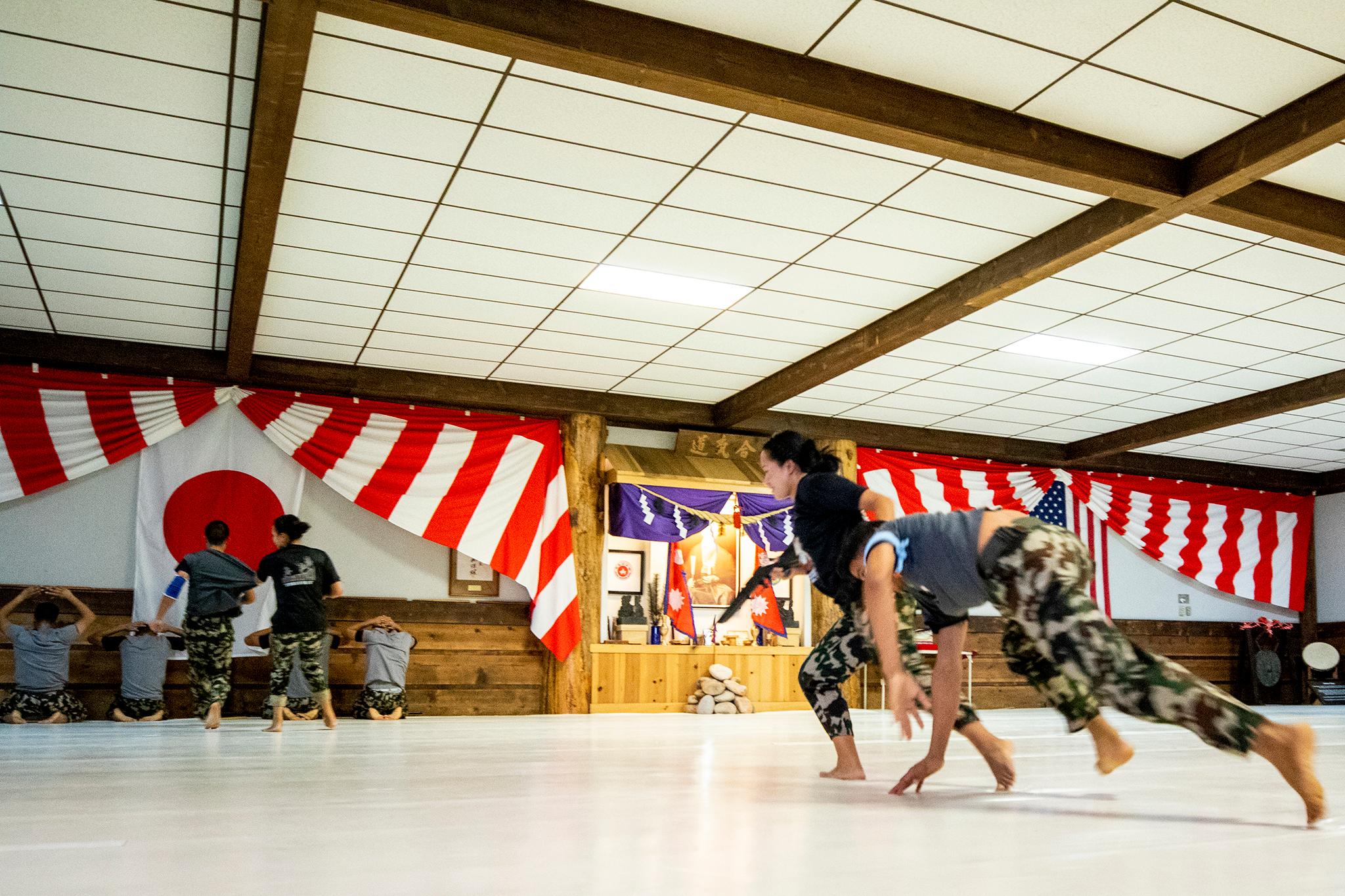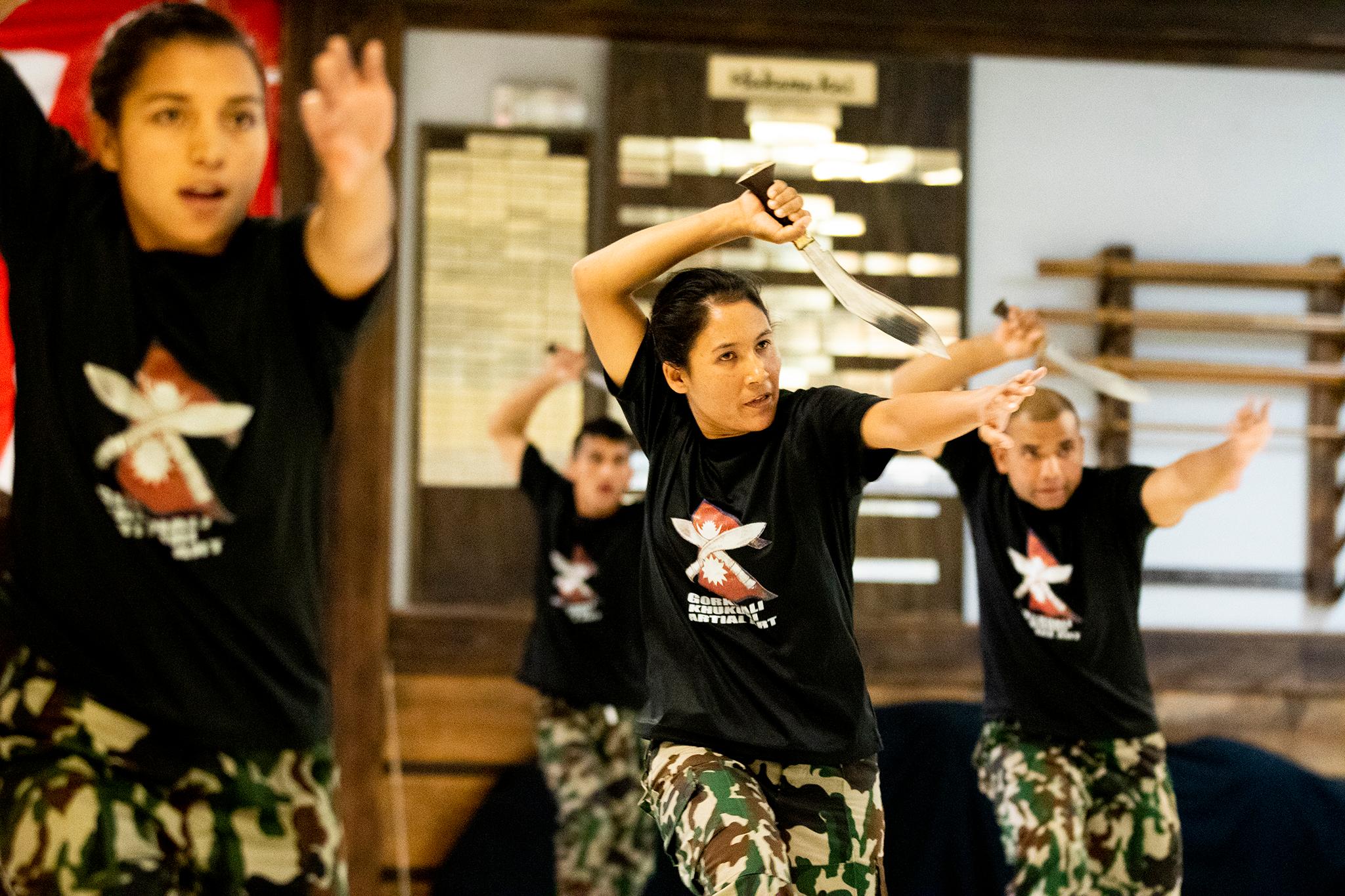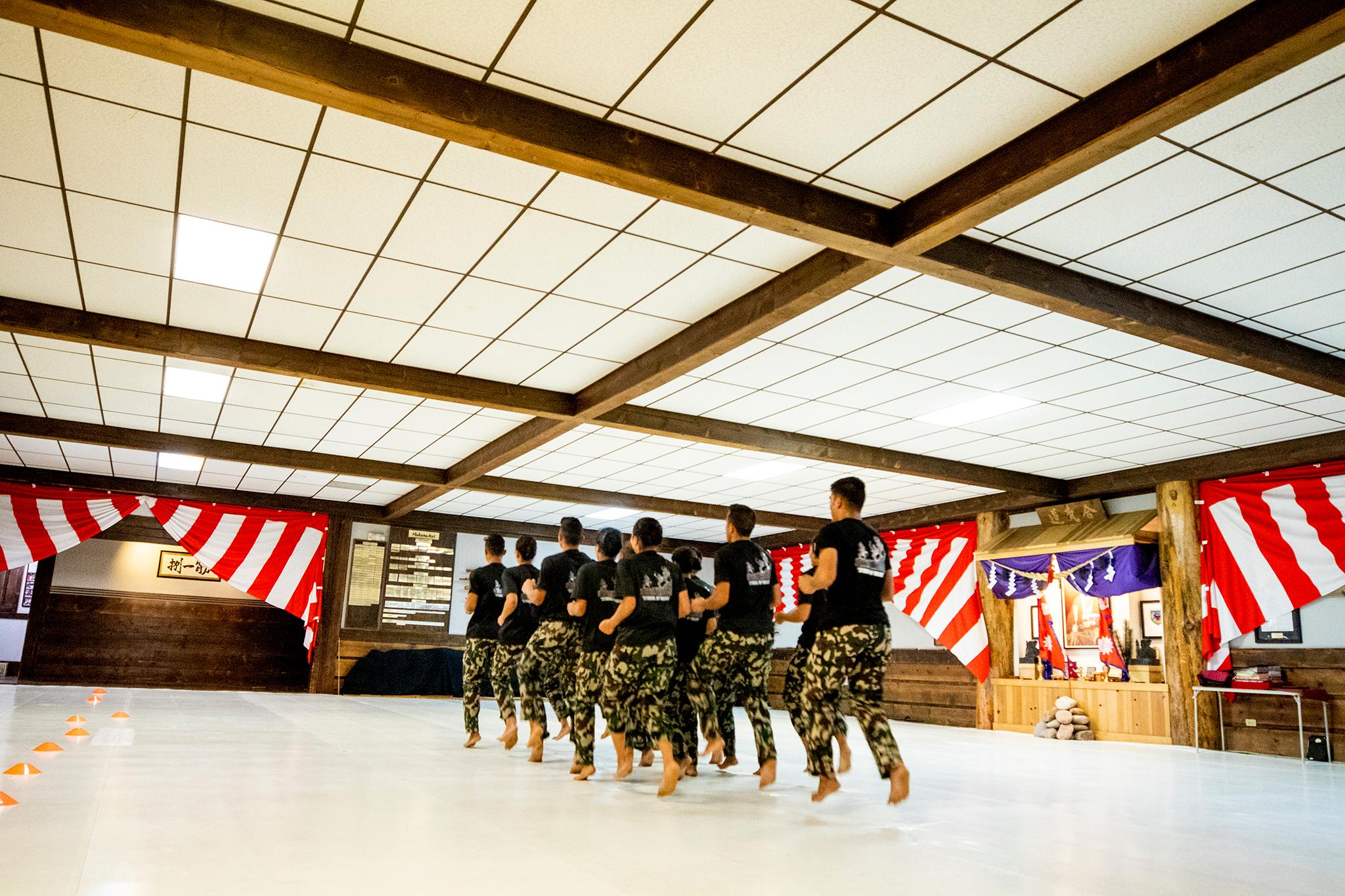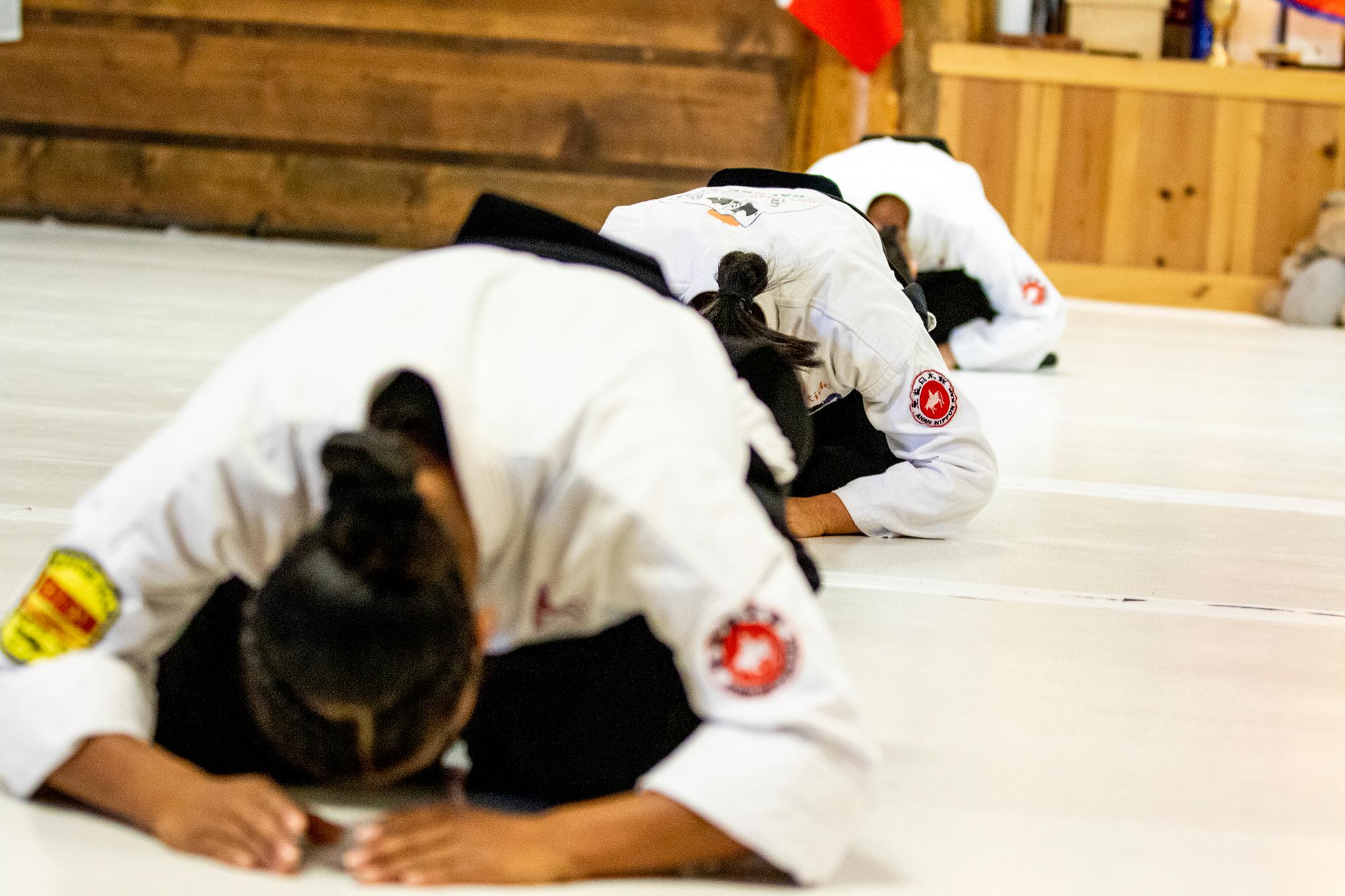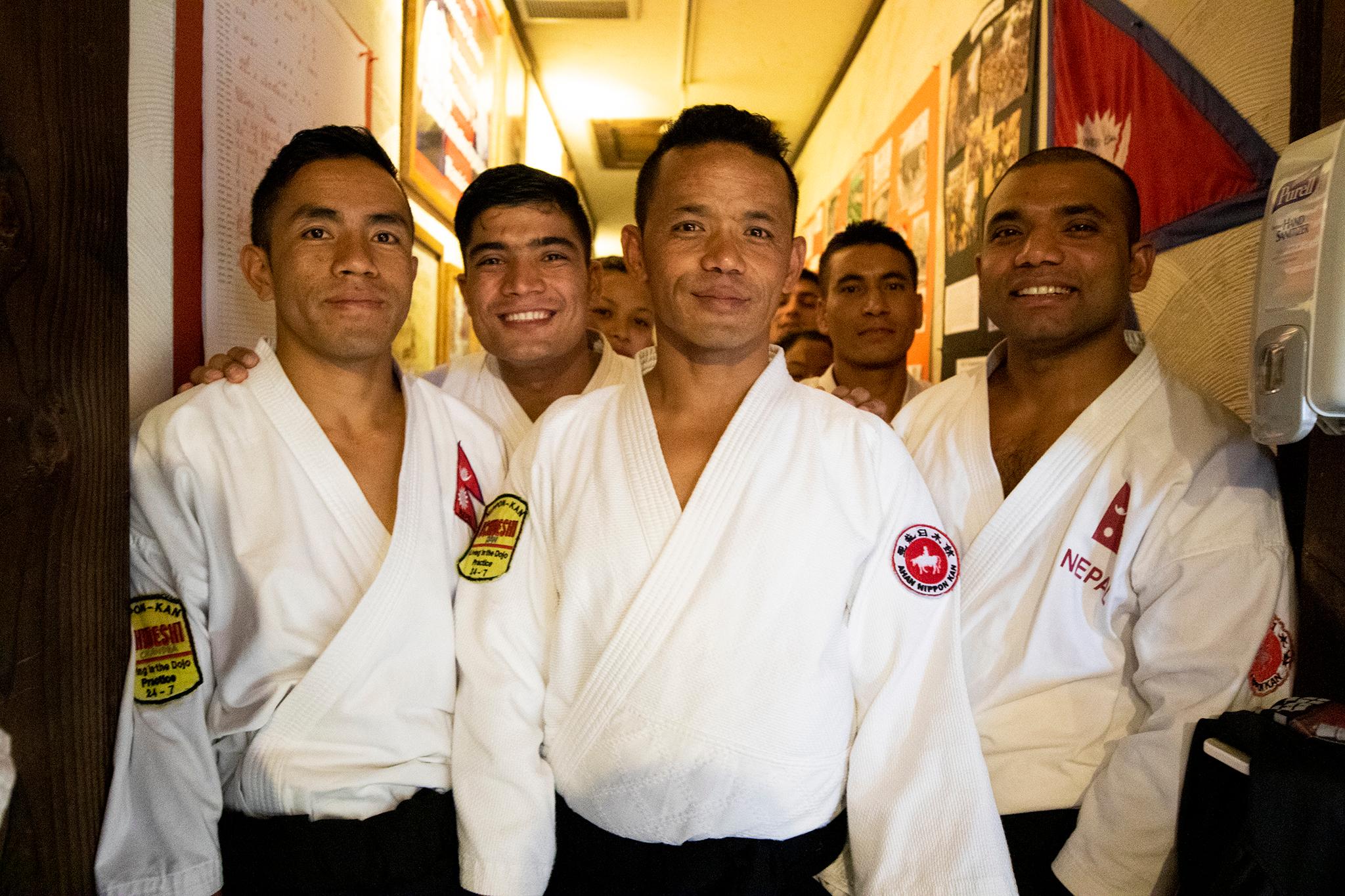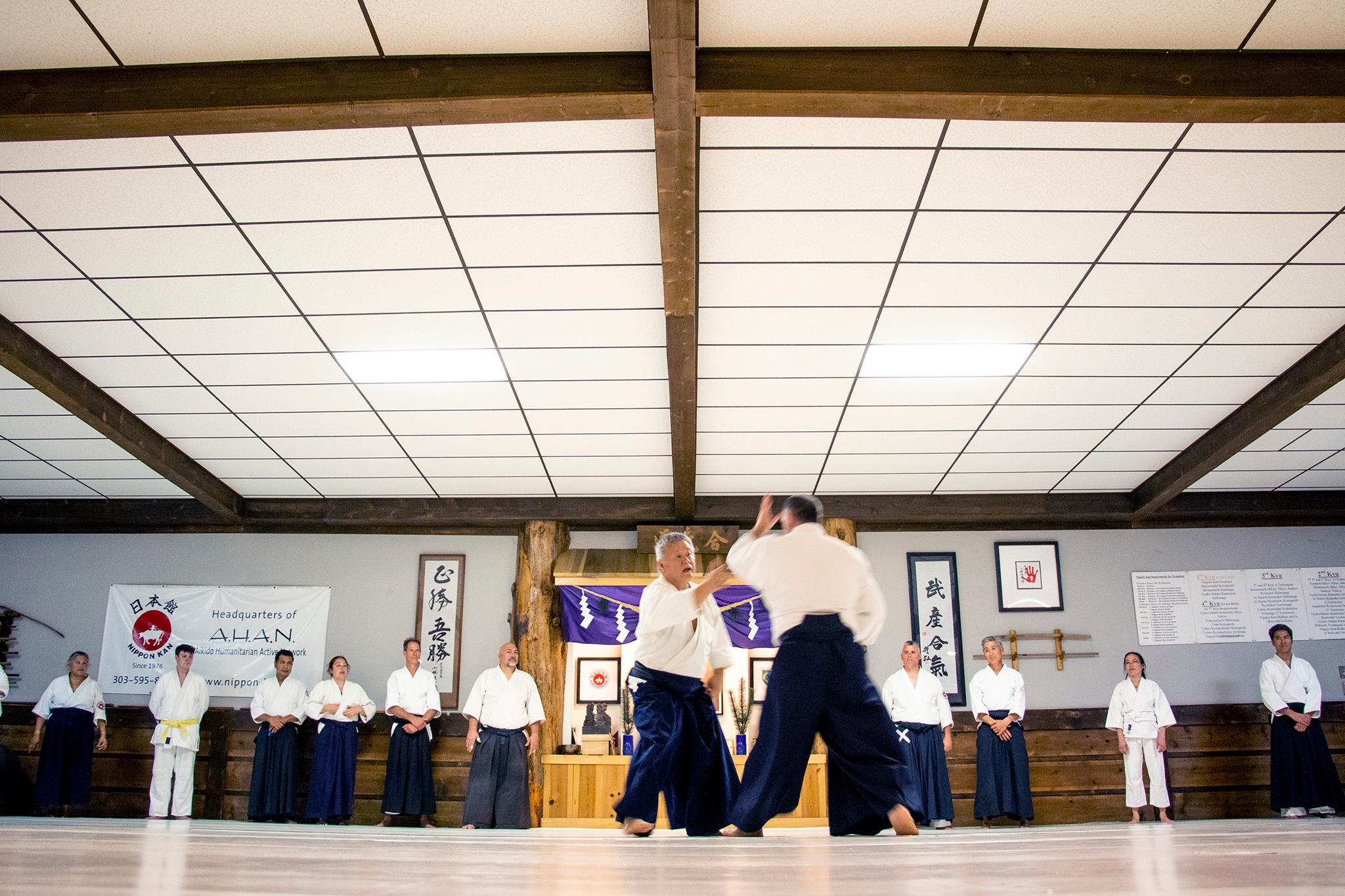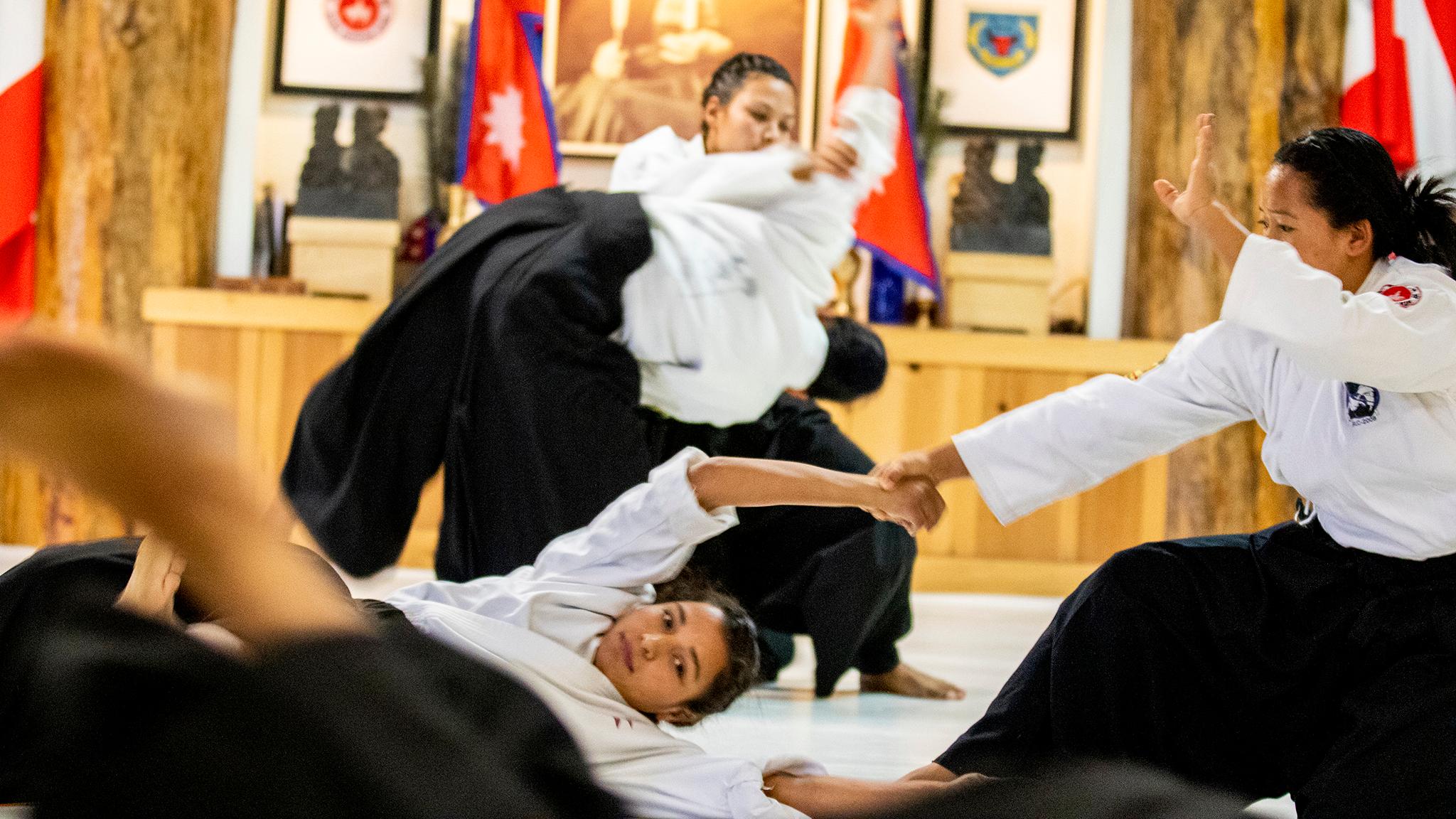Diners who visit Domo, the Japanese restaurant in La Alma/Lincoln Park, seem to pass into another dimension when they enter into its lush, meticulously planted garden.
The building was once a mattress warehouse surrounded by empty fields, but it's long been transformed to look like a traditional Japanese home. It's an enclave surrounded now by apartment buildings and public housing that's sprung up in recent decades.
But guests last week may not have noticed the other facets of this place. They radiate from this central point like spokes on a wheel.
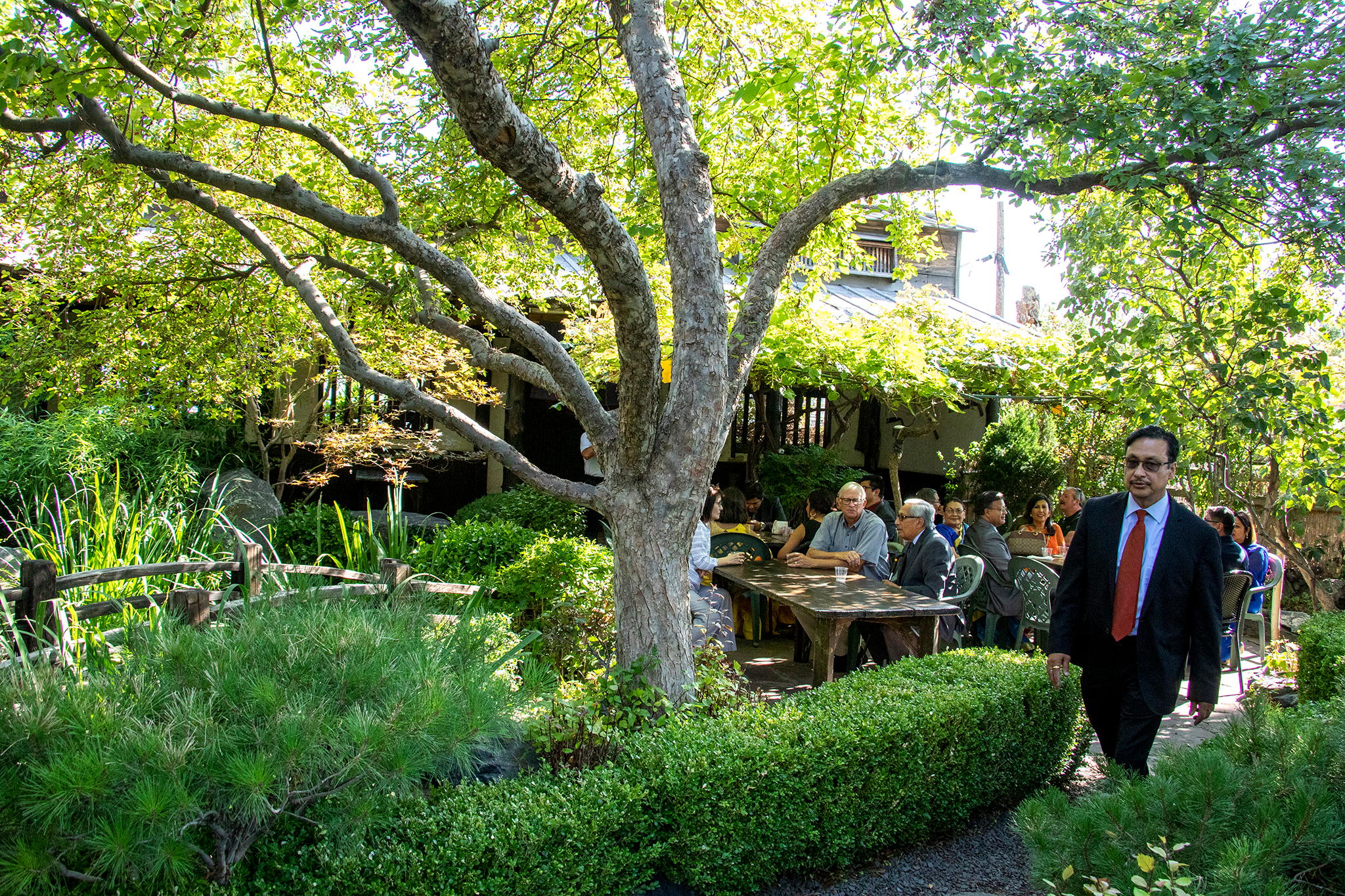
On Saturday, elite members of Nepal's army, who also work as United Nations peacekeepers, ate alongside Domo's regular visitors. They'd just completed training with Gaku Homma, known here as Homma Sensei, the founder of Domo and the attached Nippon Kan Aikido school. He's the hub of this wheel.
This is a place to learn martial arts, to train soldiers, to experience culture, to eat. It's also home to Homma's worldwide charity operations. Domo's plurality is part of a broader philosophical agenda, which Homma calls "Engaged Budoism." It's a term he invented to describe a wholistic lifestyle of self improvement and community service.
Two sides to the sword
Nepali peacekeepers have come to Denver to train under Homma since 2006. Through August, they exercised daily, drilled in Aikido -- the traditional art of swordsmanship -- helped out around the garden and fed the city's unhoused.
Aikido was exclusively the domain of Samurai until it was popularized after World War II. The blade, Homma said, represents what he and his instructors teach to Denverites every day.
"There are two sides of the sword," he said. It can be used to kill, yes, but it can also cut vegetables, to cook and to feed.
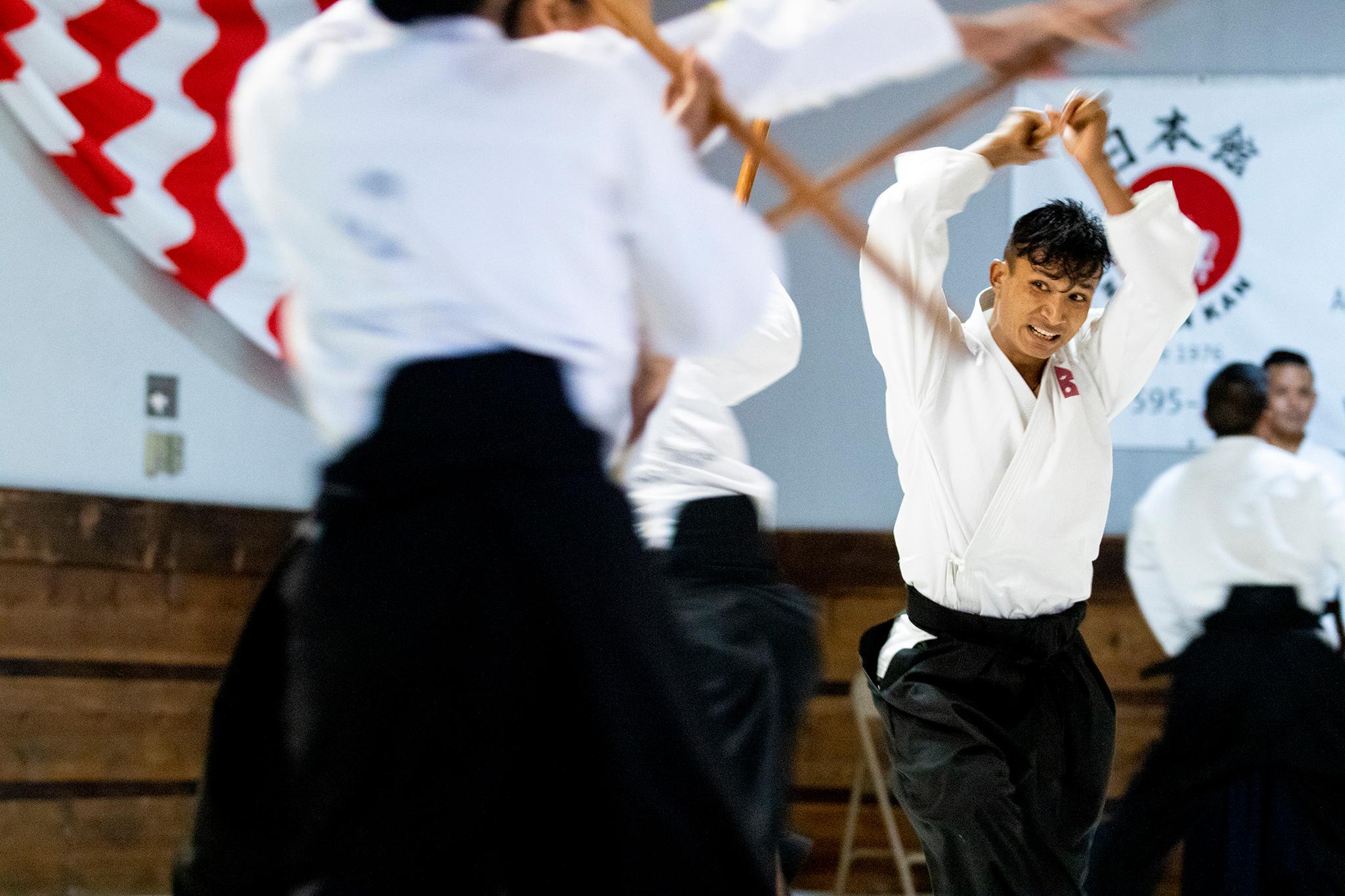
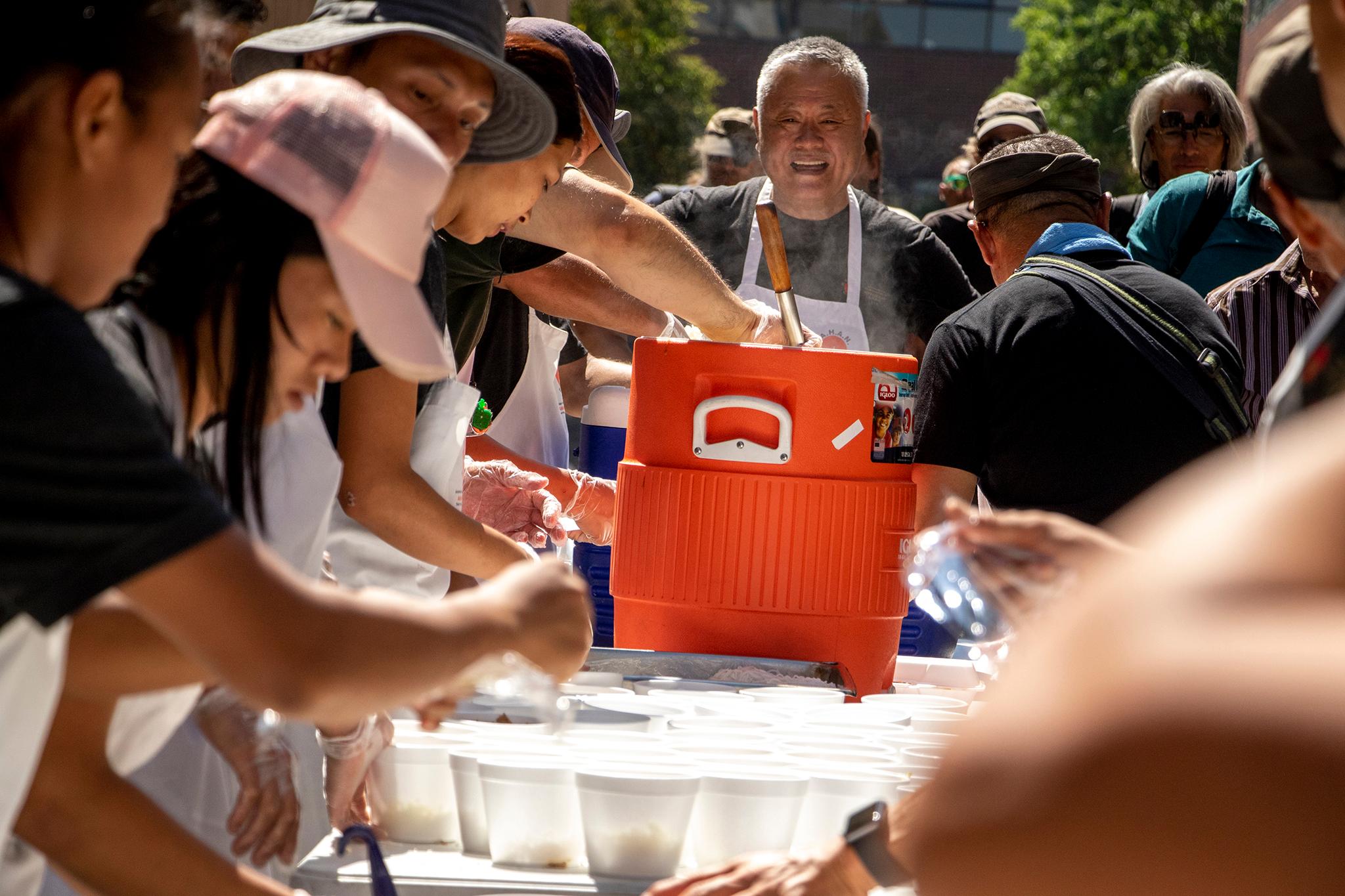
Homma sanctions violence only as a last resort. As he trained American students wielding wooden swords, he taught them only to use their weapons if attacked three times.
"First wait. Then stop. Then punish," he told them. And even if it comes to that, Homma stressed that their blades only strike the hands of their attackers. It's about "minimum damage, maximum power," he said.
"First listening, first looking," he said, "then negotiation."
Central to his philosophy is that students take their training with them into the world. For the Nepali peacekeepers, Engaged Budoism is a way to practice restraint in the field. Soldiers he trains are expected to deal with threats without resorting to mortal tactics.
They already know violence, he said: "It's their job to kill."
They come to him each year, instead, to learn how not to.
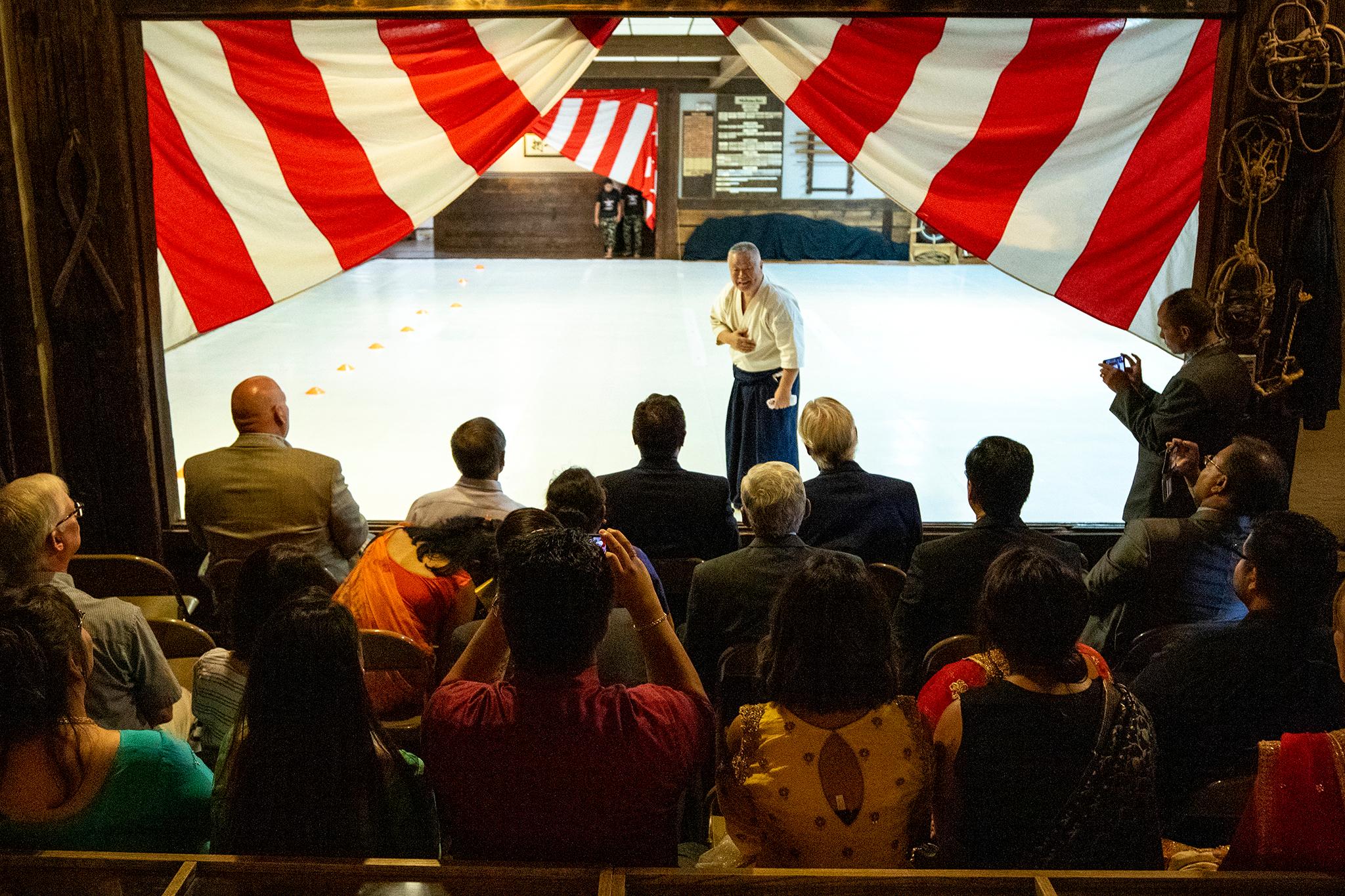
The soldiers showed off their skills before dinner Saturday, inside the dojo attached to Homma's restaurant.
One group pretended to be on patrol with machine guns. Another group acted as a violent mob. When the mob rushed the patrol, the soldiers used their assailants' momentum against them, knocked them down and corralled them on their knees against a wall. This should all go down, the demonstration suggested, without ever pulling a trigger.
"These trainees have learned quite a lot of things," Major General Shashi CB Singh, who traveled from Nepal to watch the closing ceremony, said afterward. "Respect, tolerance, dedication, determination and discipline."
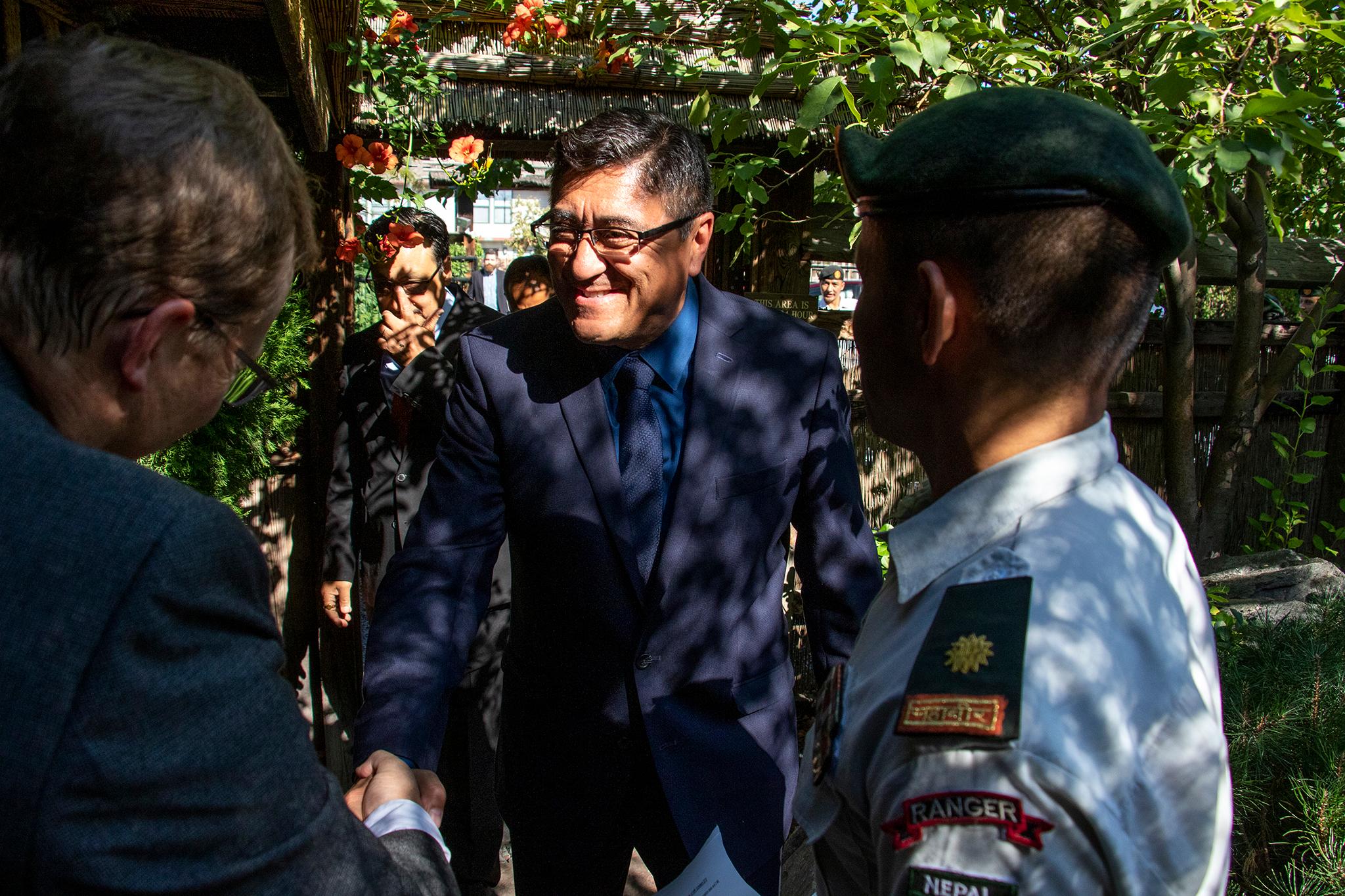
Homma said the community service aspect of his training reminds soldiers of the humanity of those they may have to engage with in a conflict. If more people were fed and served, he said, they may never resort to violence.
"Martial art is not only kick, punch, use the weapon," Homma said. It's about "communication to other people."
An enlightened community in Denver may hold fast as the city transforms around it.
Homma was born in Japan, the son of a decorated army officer who lost everything after the Second World War. His father left the military and became a shoe shiner, and the family descended into poverty.
But Homma found his way as he became dedicated to martial arts. Inspired by Judo he saw on TV as a kid, he took up the practice and found himself a student of Aikido. He traveled to the U.S. with some American soldiers as a young man. Their car broke down in Denver as they drove east across the country. Homma never left. He founded Nippon Kan in 1978.
When he bought the building on Osage Street, it was an empty industrial shell. George Blankenship, a former student and advisor, said Homma shaped the place from plans in his head. He directed his students as they used traditional carpentry tools to create his vision.
The tabletops inside the restaurant were discarded flagstone sidewalks he found. The plants in the garden out back began as $10 saplings from Home Depot.
As those saplings grew, so did Nippon Kan's community and Homma's philosophies.
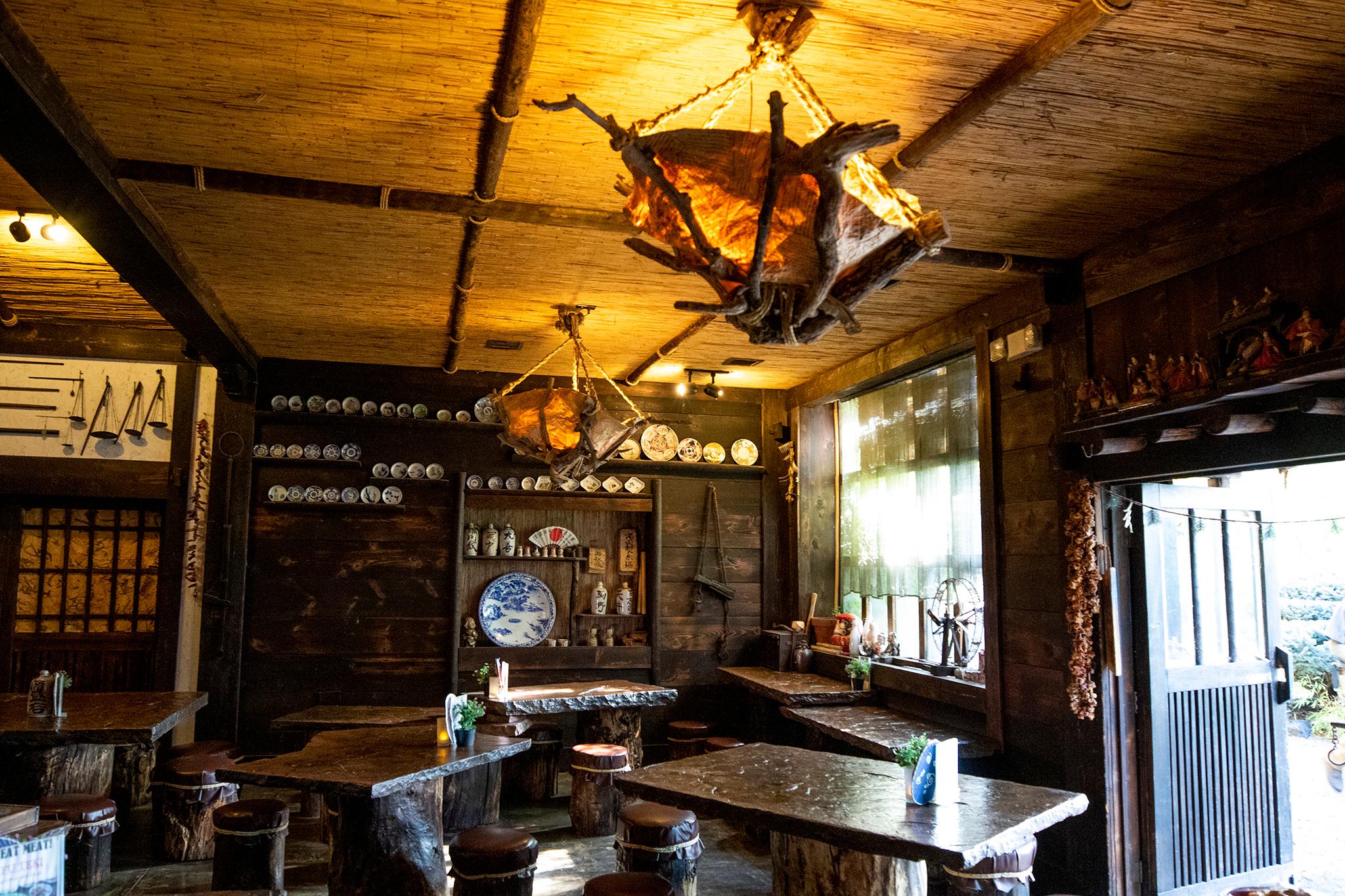
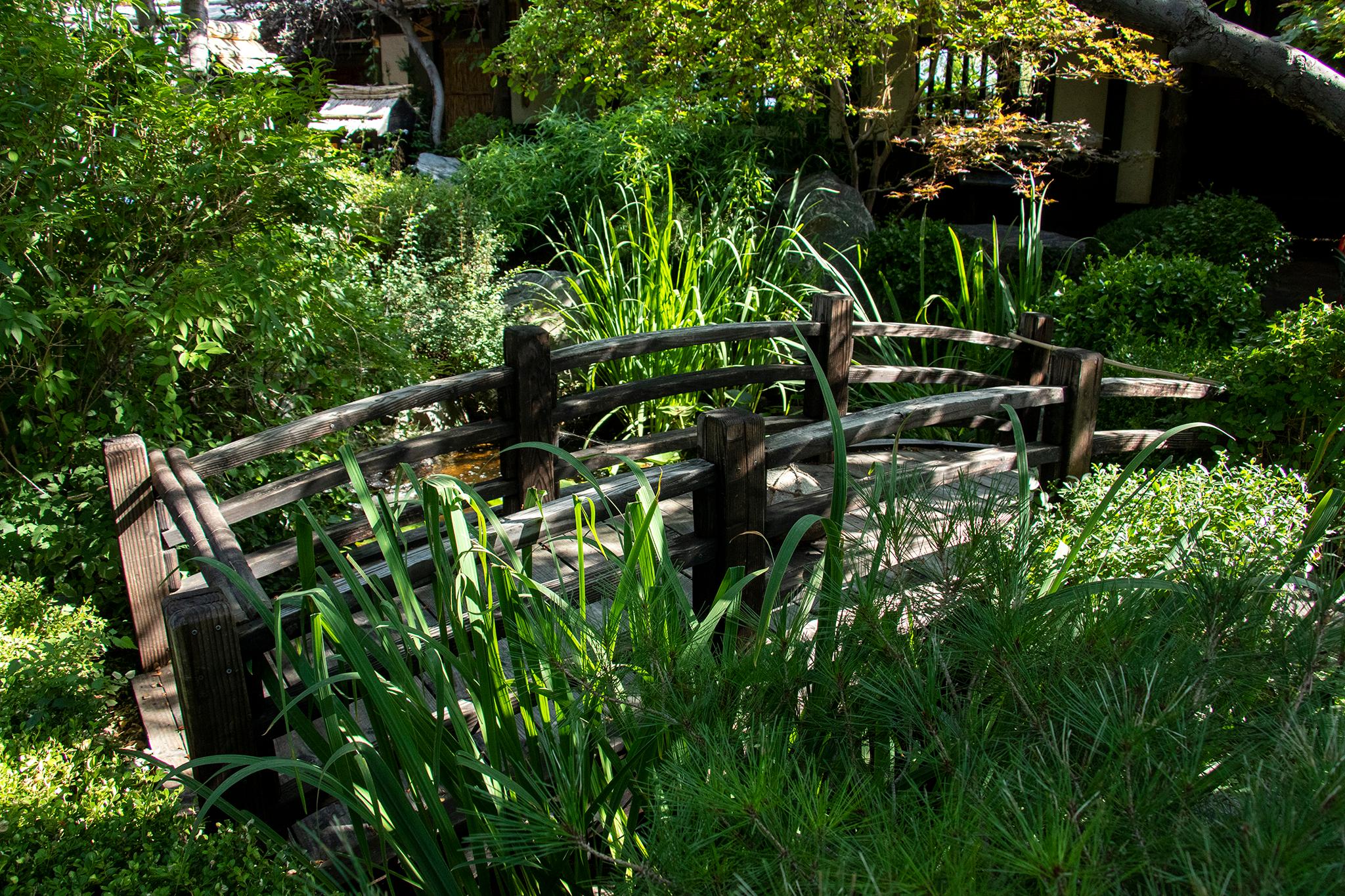
Over the years, he's traveled to Asian countries where he set up a dozen orphanages and schools. He's led his students to the Auraria campus where they've served thousands of meals to people experiencing homelessness.
"Even though we are not physically in the dojo for most of these projects, we never leave the dojo," Homma wrote in a 2008 blog post defining Engaged Budoism.
His time living in poverty and finding his own way out of it, he said, guides what he teaches his students.
Even as he nears 70 years old, he said, "I can't stop."
But, he admitted, he'll have to retire someday. The fate of his restaurant and dojo are secure for now, but property taxes have risen in the neighborhood as buildings spring up around him.
And when he's gone, he said, he's not sure if any one person could replace him.
"Nobody can continue this," he said.
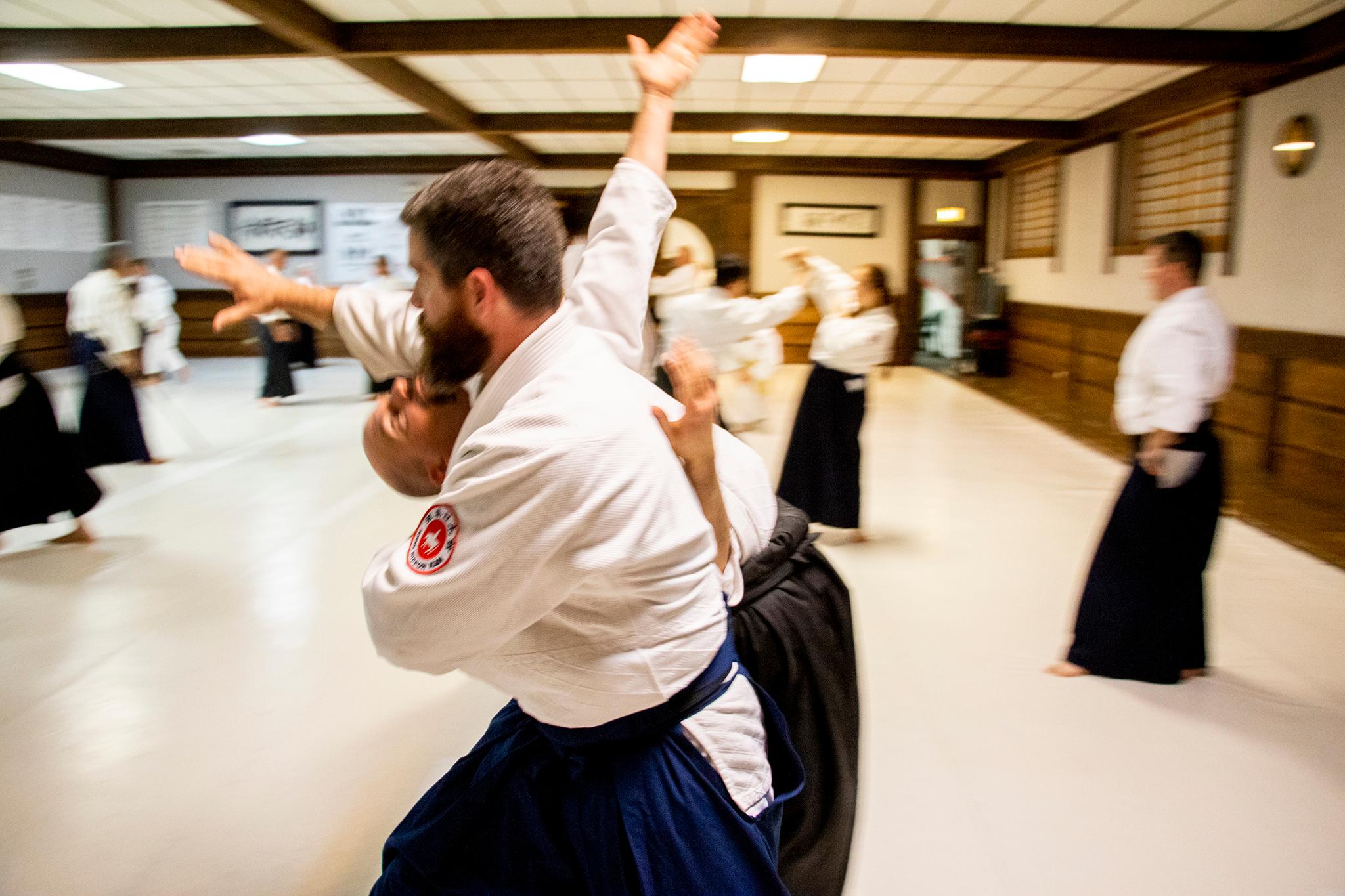
But Jason Lowrey, one of Homma's instructors, said the point was never to create a dojo dynasty.
"People get the tools, the resources, to run their own schools," he said.
Lowrey's not sure what will happen to the building once Homma retires, but that's not exactly important.
"As sensei says, there was just an empty factory here," he said. "It's not the space that makes this place. It's the people that makes this place. That's what he's constantly sharing with us."
Bryon Hays, Nippon Kan's chief technical instructor and the organization's vice president, said those people were attracted to Homma and his dojo because of his unique vision. The cultural exchange, the emphasis on service and the comprehensive lifestyle keep people in its orbit.
"We learn from each other. We experience each other," he said. It's a refreshing experience in a world that's "factionalizing," he said.
Blankenship, like the rest, agreed there's something there beyond the building and the restaurant.
"Theres a community here that lasts forever," he said.
